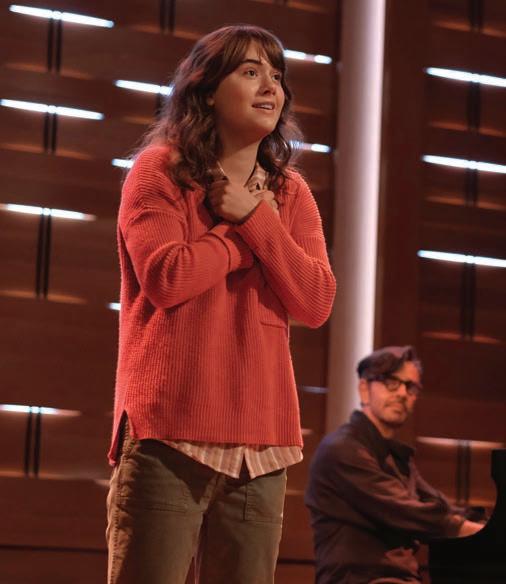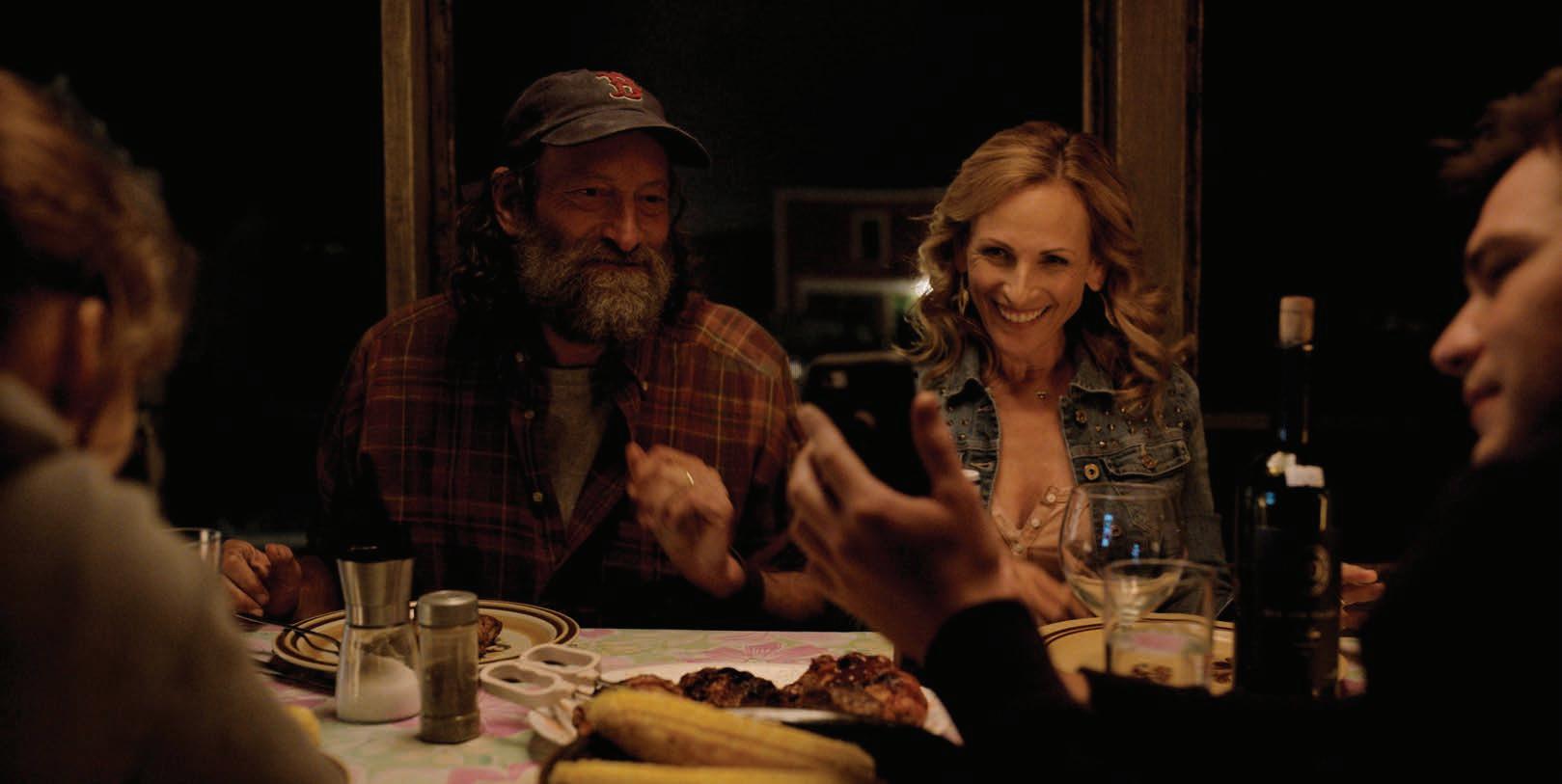
2 minute read
“CODA”
MAIN CAST:Kevin Chapman, Eugenio Derbez, Daniel Durant, Lonnie Farmer, John Fiore, Amy Forsyth, Emila Jones, Troy Kotsur, Marlee Matlin, Molly Beth Thomas, Ferdia Walsh-Peelo CASTING BY:Deborah Aquila, Lisa Lobel, Angela Peri, Tricia Wood, and Lisa Zagoria DIRECTED BY: Sian Heder WRITTEN BY:Sian Heder
DISTRIBUTED BY: Apple TV+
ADAPTED FROM ÉRIC LARTIGAU’S FRENCH
film “La Famille Bélier,” Apple TV+’s “CODA” captures audiences’ hearts from the start. While there have been many coming-of-age movies,
EMILIA JONES AND EUGENIO DERBEZ
this drama-comedy showcases a hero we rarely get to see on film: a teenager who’s the only hearing person in a deaf family.
CODA stands for “Child of Deaf Adults,” which Emilia Jones—an English actor best known for her role on the Netflix series “Locke & Key”—captures perfectly as bold, quirky 17-year-old Ruby Rossi. Viewers follow the teen as she struggles with typical high school problems like fitting in, going to class, and dating, but also with acting as her family’s connection to the hearing world. Making their living fishing the Massachusetts coast, Ruby’s parents, Frank and Jackie, and her brother Leo rely on her to help them communicate with their buyers. Ruby, meanwhile, is torn between continuing to work with her family and pursuing her passion for music. Her choir teacher (Eugenio Derbez) thinks she has real potential and advocates for her admittance to Berklee College of Music—but her singing is a skill that her family can neither hear nor appreciate.
Filmmaker Sian Heder brings this dynamic clan to life with her unique writing and directing style. The arguments between Ruby, Frank, Jackie, and Leo (the latter three played by deaf actors Marlee Matlin, Troy Kotsur, and Daniel Durant) feel raw and real. Facial expressions, signs, and body language are used to highlight both the challenges and beauty of nonverbal communication.
There are also quieter scenes alongside these tense moments, sometimes performed with no sound at all. When Ruby’s family attends her choir concert, we’re invited to experience the music from Frank’s perspective. The sound cuts out completely as he smiles supportively at his daughter onstage. The change in perspective gives viewers a glimpse into a world with no sound; it’s one of the movie’s most memorable scenes. Later, Ruby performs for him alone as he feels the vibrations of her vocal cords; Frank finally learns to hear his child sing in his own way, creating a father-daughter moment for the ages. Bring tissues.
These tear-jerking scenes are what makes “CODA” an unforgettable film that’s absolutely worthy of SAG Award recognition. Heder depicts a working-class family’s trials while also shining a light on an experience not seen often enough in cinema. It’s a masterstroke. The film’s perfectly cast ensemble rises to the occasion by bringing layers of emotion to each glance and gesture. —JACQUELINE TYNES
EMILIA JONES, TROY KOTSUR, MARLEE MATLIN, AND DANIEL DURANT











